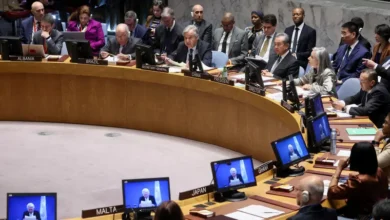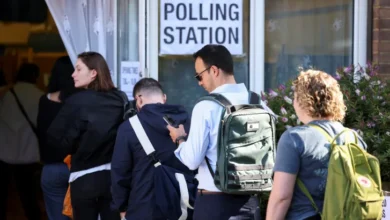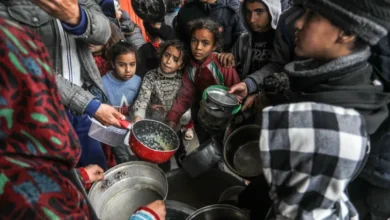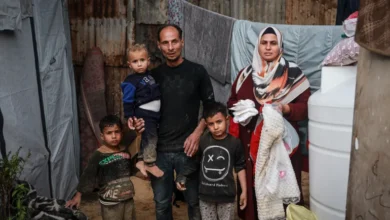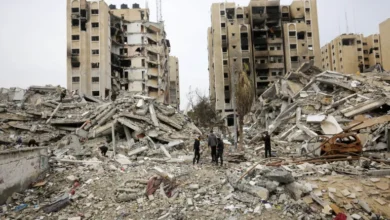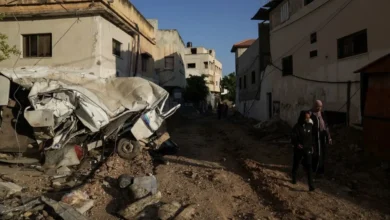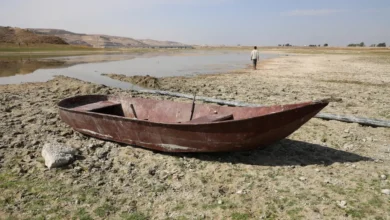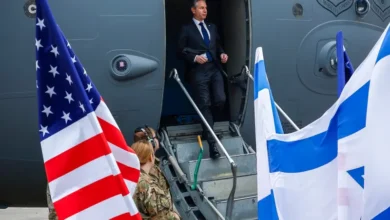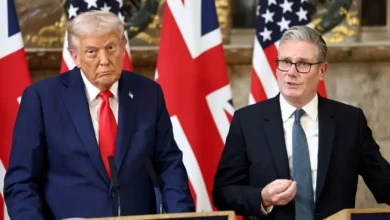Fighting Hamas puts Israeli protests on ice, but political divide remains
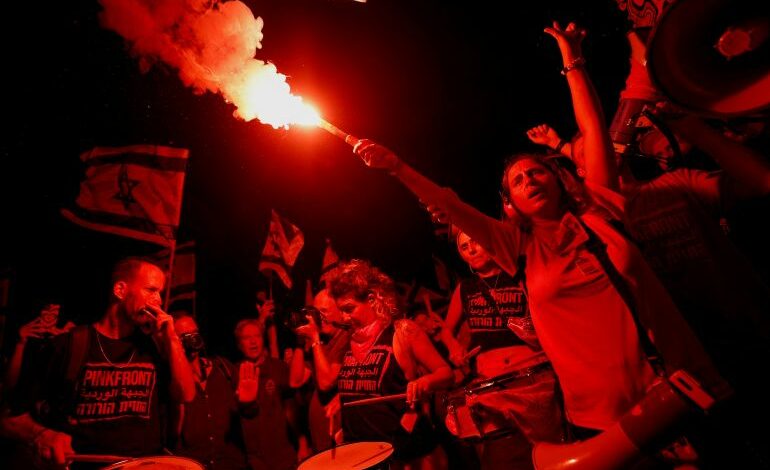
Saturday’s surprise attack by Hamas has left Israelis in shock, outraged at a government many feel failed to protect them – but analysts say the political fallout will have to wait as the army wages war in Gaza.
The attack, which Israel’s intelligence services appear to have completely missed, marked “a colossal failure”, said retired Colonel Miri Eisin, the managing director of Israel’s International Institute for Counter-Terrorism.“Critical voices will come out, but that’s not the focus in Israel right now. We need to get through this [war], then we will start pointing fingers,” she told Al Jazeera. “It will be harsh and horrible, but it will [come] after we’ve stabilised.”
Hamas launched the unprecedented operation at dawn on Saturday, firing thousands of rockets into southern Israel, sending fighters deep into Israeli territory and abducting more than 100 Israelis.
Israel swiftly responded with air attacks on the overcrowded and besieged Gaza Strip.
Israeli air attacks in Gaza have killed more than 560 people, including 20 children. About 800 Israelis have been killed in the Hamas attack, according to media reports.
Clashes are ongoing between Hamas fighters and Israeli forces in southern Israel in the cities of Ashkelon and Sderot and at a kibbutz in Karmia.
Shocked public backs ‘dramatic’ response
Prime Minister Benjamin Netanyahu was quick to announce that Israel would “exact an immense price from the enemy” in Gaza and threatened to turn the Palestinian enclave into a “deserted island”.
Israel has placed the impoverished territory of 2.3 million people under a land, air and sea blockade since 2007 and launched repeated assaults on it to fight Hamas, which controls the Gaza Strip, and other armed groups, arguing it needs to act decisively to stop them firing rockets into Israel.
But Israeli operations have not dislodged the armed group from power or stopped the rocket fire as Palestinians have suffered most of the casualties. would unite behind a tough response.
“The great shock caused by Hamas abducting and attacking civilians in such an organised way, within Israeli territory, gives very strong legitimisation across the political spectrum for a quite dramatic military operation in Gaza,” she told Al Jazeera.
But the government also faces severe criticism, even from within, for being caught off guard.
The crisis is a particularly heavy blow to Netanyahu, who has been beleaguered by repeated political crises and corruption charges that threaten to land him in prison.
Michael Stephens, an associate fellow at the United Kingdom-based defence and security think tank Royal United Services Institute, said the attack was “politically devastating for Netanyahu”.
“This government was meant to be the one that took security seriously, and they’ve delivered nothing,” he said.
“There’s no way they come out of this looking good. It would be very, very difficult for an Israeli PM to survive this.”
